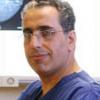So, another Breast Cancer Awareness Month is drawing to a close and the healthcare industry is hoping that all of us have learnt something. Despite this, it appears that the facts surrounding breast cancer screening are more controversial than ever. How can all women, including our mothers and grandmothers, be made aware of the risks and benefits involved in screening?
The NHS Breast Screening Programme sees around 1.6 million women a year but the facts of the programme are little known to most women,  particularly during a time of breast screening controversy. The government’s Cancer Director, Prof Sir Mike Richards, has set up an independent investigation into breast cancer screening to assess the benefits and risks.
particularly during a time of breast screening controversy. The government’s Cancer Director, Prof Sir Mike Richards, has set up an independent investigation into breast cancer screening to assess the benefits and risks.
A number of scientists have criticised the NHS screening programme for the undue stress caused to women during unnecessary call-backs and for treating cancers that would never lead to harm with potentially damaging surgery, chemotherapy and radiotherapy. The NHS maintains, however, that although screening may result in over-treatment mammography saves lives. The NHS has also been criticised for producing misleading leaflets exaggerating the benefits of breast screening and for not providing enough comprehensive information for women.
Many women are unaware of the screening procedures and it is important that women educate not only themselves, but those women unlikely to have access to the same resources such as the elderly and vulnerable. Try to familiarise yourself with all the available information and share this with your friends and family so that all women are made aware of their screening options.
By the end of next year all women aged 47 to 73 will be automatically invited on a three-yearly basis to come for screening at a special clinic or mobile breast screening unit. The screening is carried out by female staff who take a breast x-ray, mammogram, to try to find any abnormalities in the breast tissue. Women who fall outside of this age range may feel that they are unable to get screened which is problematic in older women as the risk of developing breast cancer rises each year meaning that those women older than 73 are in fact more likely to develop breast cancer that those who are being regularly screened. It is important that all women of this age range are advised to arrange screening through their GP or local screening unit once they no longer receive automatic invitations. Likewise, women under the age of 47 years who have a higher risk of developing breast cancer can also be referred for screening by visiting their GP. Risk factors for breast cancer include having two or more relatives with breast cancer or a mother or sister being diagnosed before the age of 40. Women who are at a high risk of developing breast cancer over the age of 40 are offered breast screening once a year either with a mammogram or MRI scans for younger women.
The advice remains to get the information out there. All women need to know the facts about breast screening to allow them to make their own decisions on whether to have regular screening or not. For those women who do not have access to the wealth of information the internet has to offer it is essential for them to visit their GP for advice especially the elderly who are at the highest risk. Make sure that your mother, grandmother, aunty, sister, cousin, next-door neighbour, friend, colleague, lady at the market, receptionist at the dentist… are all made aware of the facts.


